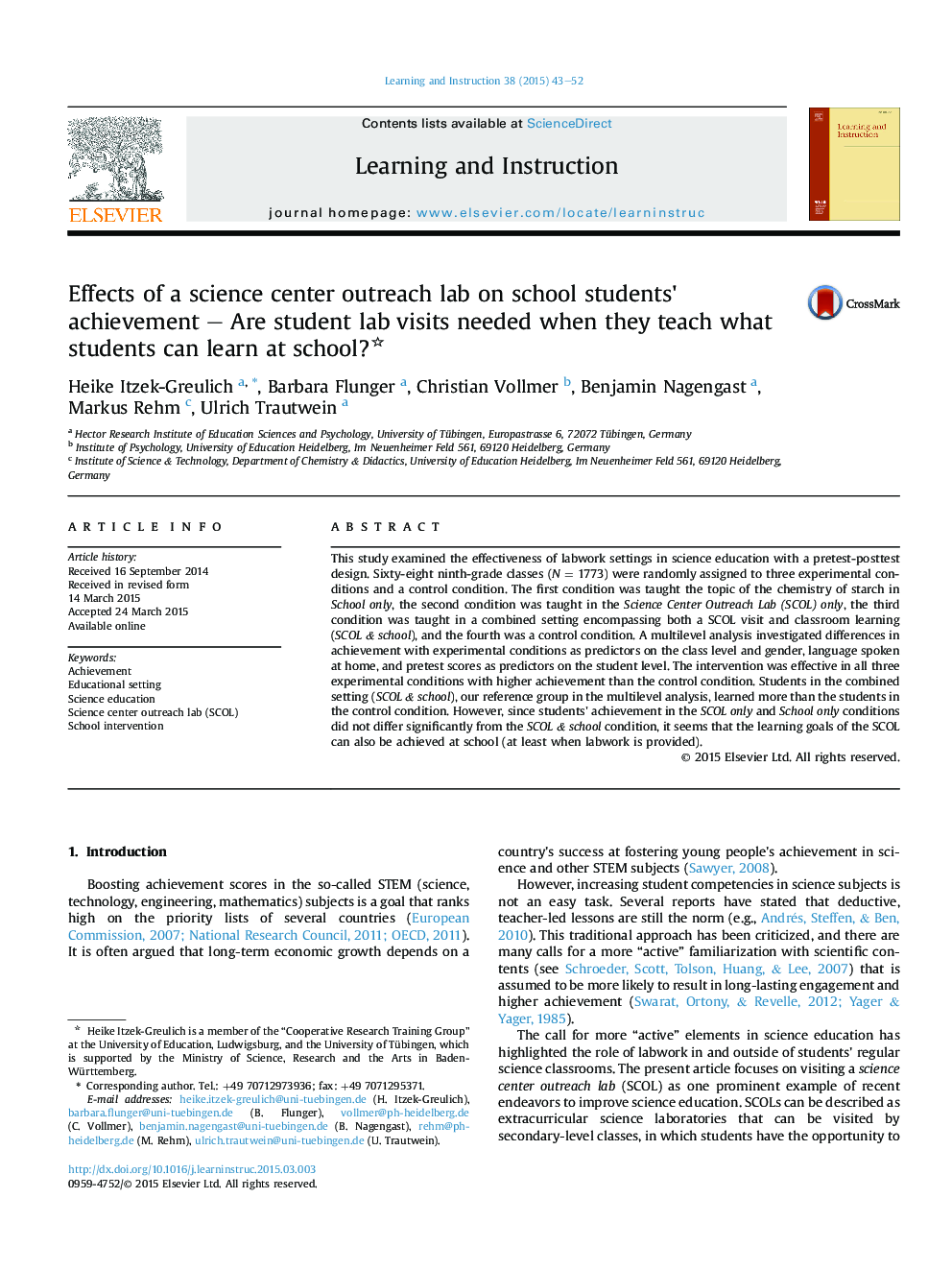| Article ID | Journal | Published Year | Pages | File Type |
|---|---|---|---|---|
| 6845816 | Learning and Instruction | 2015 | 10 Pages |
Abstract
This study examined the effectiveness of labwork settings in science education with a pretest-posttest design. Sixty-eight ninth-grade classes (NÂ =Â 1773) were randomly assigned to three experimental conditions and a control condition. The first condition was taught the topic of the chemistry of starch in School only, the second condition was taught in the Science Center Outreach Lab (SCOL) only, the third condition was taught in a combined setting encompassing both a SCOL visit and classroom learning (SCOL & school), and the fourth was a control condition. A multilevel analysis investigated differences in achievement with experimental conditions as predictors on the class level and gender, language spoken at home, and pretest scores as predictors on the student level. The intervention was effective in all three experimental conditions with higher achievement than the control condition. Students in the combined setting (SCOL & school), our reference group in the multilevel analysis, learned more than the students in the control condition. However, since students' achievement in the SCOL only and School only conditions did not differ significantly from the SCOL & school condition, it seems that the learning goals of the SCOL can also be achieved at school (at least when labwork is provided).
Related Topics
Social Sciences and Humanities
Psychology
Developmental and Educational Psychology
Authors
Heike Itzek-Greulich, Barbara Flunger, Christian Vollmer, Benjamin Nagengast, Markus Rehm, Ulrich Trautwein,
